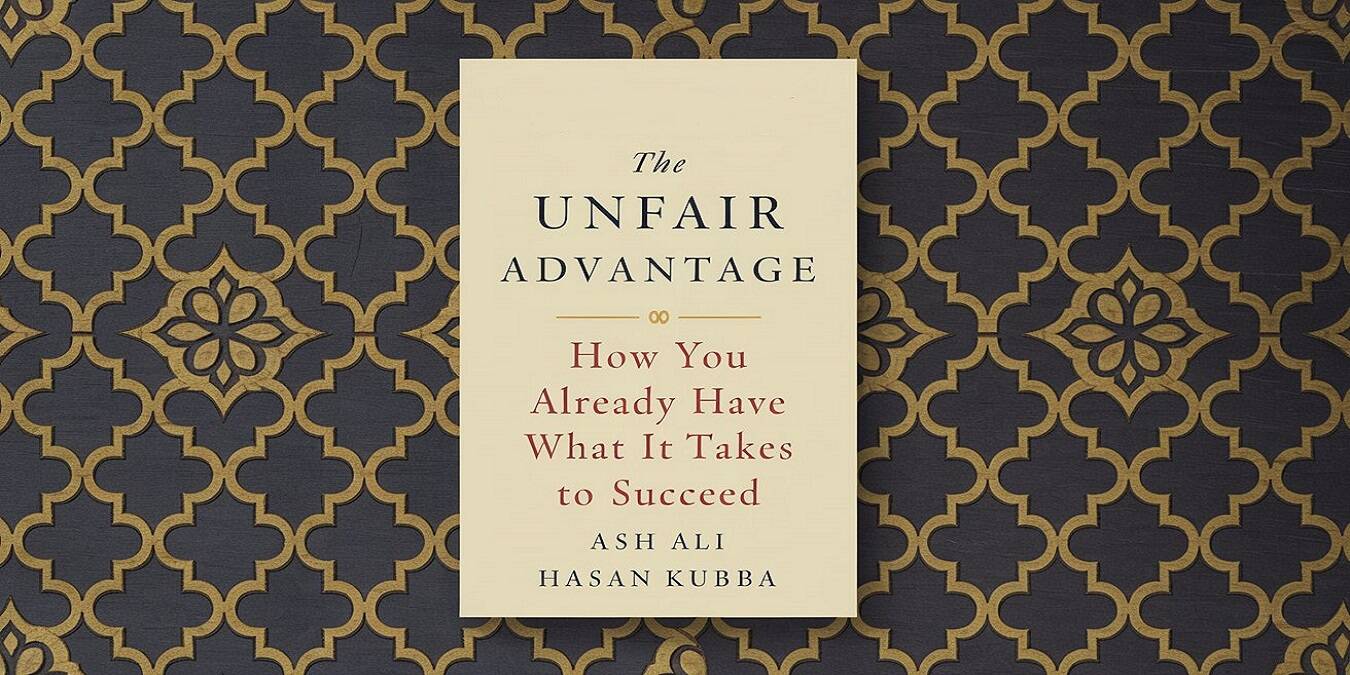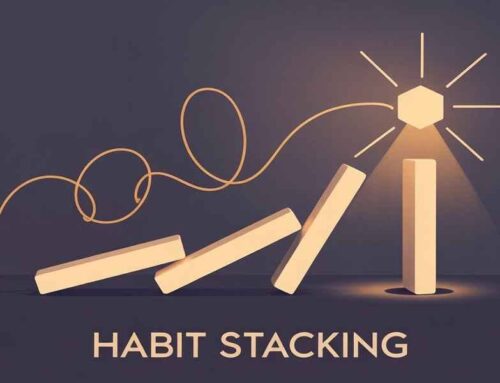
Success from Within: Book Summary of The Unfair Advantage by Ash Ali and Hasan Kubba
Have you ever wondered what truly sets successful people apart? Is it their intelligence, their skills or perhaps just sheer luck? The answer lies in something deeper- success from within.
Ash Ali and Hasan Kubba, in their thought-provoking book The Unfair Advantage: How You Already Have What It Takes to Succeed, reveal how tapping into your intrinsic strengths and leveraging the advantages you already possess can be the ultimate key to thriving.
No one starts at the same line in the race of life. Some are equipped with more resources, better connections or simply the right environment to flourish.
But here’s the good news: your unique qualities, experiences and circumstances, no matter how small they may seem, can become your unfair advantage. By learning to recognize, nurture and capitalize on these strengths, you unlock inner potential and pave your path to success.
Why an “Unfair Advantage” Matters
Ali and Kubba argue that traditional narratives of success often glorify hard work and meritocracy. While these factors are undeniably important, the authors believe that acknowledging and utilizing the specific advantages you hold gives you a critical edge. It’s not about being born into privilege; it’s about understanding and maximizing your unique starting point.
The concept of an unfair advantage is built around recognizing your individuality. Are you naturally charismatic? Do you have a knack for networking? Or perhaps you grew up in a challenging environment that made you resilient? Whatever it may be, your life’s circumstances are a toolkit waiting to be unlocked.
The MILES Framework: Your Success Blueprint
The core of the book is built around the MILES framework, a tool designed to help you identify your unfair advantages. Each letter stands for a specific domain of advantage:
- Money: Financial resources you have access to, including family wealth or savings.
- Intelligence and Insight: Your ability to solve problems, think critically or spot opportunities.
- Location and Luck: The opportunities that arise from where you live, the people you meet or chance events.
- Education and Expertise: Formal education, professional skills and experiential knowledge.
- Status: Your social standing, network and personal brand.
Let’s explore each component and how they fit into your journey to success.
- Money: More Than Just Dollars
Many people see wealth as the ultimate unfair advantage, but Ali and Kubba dig deeper. They highlight that while financial resources open doors, they aren’t the only determinant of success.
If you don’t have financial capital, don’t despair. The book emphasizes that resourcefulness often trumps resources. Can you build partnerships? Leverage free tools? The authors encourage readers to think creatively about the assets they already possess.
Ask Yourself: How can I make the most of the financial resources available to me? What can I do to access more capital creatively?
- Intelligence and Insight: A Unique Edge
Contrary to popular belief, intelligence isn’t just about IQ. The book broadens the definition to include emotional intelligence, social intelligence and the ability to gain insights from unique experiences.
Ash Ali shares his personal story of how he dropped out of college yet succeeded by leveraging his street smarts and creativity. Similarly, Hasan Kubba emphasizes how being self-aware and observant gave him a better understanding of what truly works in business and life.
Key Takeaway: Intelligence isn’t just book smarts. Understanding people, trends and opportunities can be just as powerful.
- Location and Luck: The Underestimated Factors
Is luck real? The authors believe it is, but not in the mystical sense. They argue that your environment, where you live, work and socialize, plays a massive role in your opportunities.
Think about the tech entrepreneurs who thrived in Silicon Valley or the artists who found their breakthrough in Hollywood. Being in the right place at the right time matters. But here’s the twist: luck favors the prepared. By being proactive, you increase the chances of serendipity working in your favor.
Reflect: Are you placing yourself in environments where opportunities are abundant? If not, how can you shift your location, physically or virtually, to align with your goals?
- Education and Expertise: Beyond the Classroom
Education often feels like the ultimate equalizer, but the book challenges this notion. Traditional education can be an advantage, but so can real-world experience and self-directed learning.
Ali and Kubba encourage readers to redefine expertise. With online platforms like YouTube, Coursera and LinkedIn Learning, anyone can acquire skills that were once inaccessible. The authors stress the importance of being a lifelong learner.
Pro Tip: Combine your formal education with specialized skills to create a unique value proposition.
- Status: Building Your Personal Brand
Your social standing and personal brand can act as a magnet for opportunities. Whether it’s a strong network, credibility in your industry or a recognizable online presence, status can significantly accelerate your success.
The authors urge readers to work on their visibility. In today’s digital age, a LinkedIn post or a viral tweet can open doors to investors, clients or collaborators.
Actionable Insight: Focus on creating a personal brand that reflects your values, skills and aspirations.
Shifting Perspectives: Meritocracy vs. Privilege
Ali and Kubba challenge the often-repeated narrative of meritocracy – that success is purely the result of hard work. Instead, they emphasize that privilege and circumstances play a significant role. This isn’t to diminish effort but to highlight the importance of self-awareness.
Imagine two entrepreneurs starting a business. One has family connections in the industry, while the other doesn’t. Does this mean the first entrepreneur didn’t work hard? No, but it does mean their journey was influenced by their starting advantages. Recognizing this isn’t about guilt; it’s about strategy.
Embracing Your Unique Journey
The authors stress that comparisons are futile. Instead of envying others’ advantages, focus on your own. Ask yourself:
- What do I have that others might not?
- How can I leverage my personal experiences to stand out?
- What lessons have my challenges taught me?
This mindset shift is crucial to unlocking inner potential. It moves you from a place of scarcity to one of abundance.
Case Studies: Real-World Applications of the Unfair Advantage
Ali and Kubba share several inspiring case studies of individuals who turned their circumstances into stepping stones:
- A Student Entrepreneur
A young entrepreneur, despite lacking funds, utilized her network at university to launch a successful start-up. Her unfair advantage was her access to a like-minded, ambitious community. - The Resilient Immigrant
An immigrant who faced language barriers and cultural challenges built a thriving business by leveraging the unique perspective his diverse background offered. - The Social Media Maven
A social media influencer turned their personal story into a powerful brand. Their unfair advantage lay in authenticity and relatability.
These examples demonstrate how varied and personalized the journey to success can be.
Practical Tips to Harness Success from Within
- Self-Awareness is Key
Reflect on your strengths, weaknesses and circumstances. Self-awareness is the foundation of turning disadvantages into advantages. - Stop Chasing Perfection
Many people fall into the trap of trying to be “perfect.” Instead, focus on being authentic and embracing your flaws, they are often what make you relatable. - Leverage Your Network
Connections are one of the most potent unfair advantages. Don’t hesitate to reach out for help, advice or mentorship. - Stay Resilient
Challenges and failures are inevitable. Instead of seeing them as setbacks, view them as learning opportunities. - Develop Your Unique Value Proposition
What can you offer that no one else can? This is the essence of your unfair advantage.
Overcoming Imposter Syndrome
Do you ever feel like you don’t belong in the room, despite your achievements? Ali and Kubba dedicate an insightful section to addressing imposter syndrome, a feeling many ambitious individuals face.
They remind readers that everyone starts somewhere and the very fact that you’re taking action means you deserve a seat at the table. By recognizing your unfair advantages, you can build confidence in what you bring to the table.
Final Thoughts: The Path to Thriving
The Unfair Advantage is a call to action for anyone seeking to thrive in a competitive world. By recognizing that success begins from within, you can embrace your strengths, overcome challenges and unlock your full potential.
As you navigate your journey, remember that your unfair advantages, be they big or small, are your secret weapons. Whether it’s a unique talent, a supportive community or simply a fresh perspective, you already have what it takes to succeed.
Success from within isn’t about conforming to a rigid blueprint. It’s about embracing who you are, capitalizing on your strengths and carving your path in the way that feels authentic to you.
Start today by reflecting on your MILES advantages. What’s your edge? How can you amplify it? The answers lie in your story, your journey and ultimately, your unfair advantage.
Buy the Book
Buy the Book by clicking Here















Thank you, I have recently been looking for info about this topic for a long time and yours is the best I’ve discovered till now.
I have recently started a website, the information you offer on this web site has helped me tremendously. Thank you for all of your time & work.
I like what you guys are up also. Such smart work and reporting! Keep up the excellent works guys I have incorporated you guys to my blogroll. I think it will improve the value of my site :).
Wooh I like your posts, saved to fav!
Awsome blog! I am loving it!! Will come back again. I am taking your feeds also.
Wonderful site. Plenty of useful information here. I am sending it to a few pals. And naturally, thanks to your sweat!